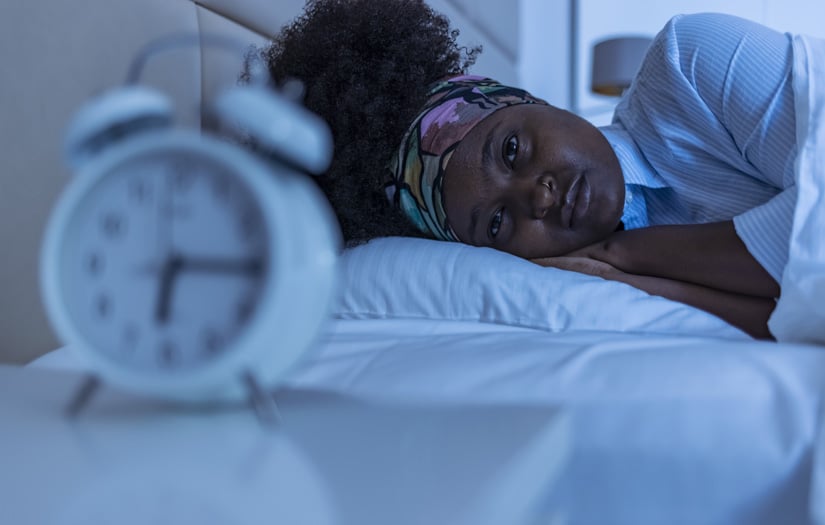We live in a culture that glorifies overworking and under-recovering. This is true in all disciplines; whether you work in an office or hospital, or are an athlete. We are often taught from a young age with very full schedules, that sleep comes second to work and achievement. Magee et al. (2009) conducted an analysis of surveys from over 49,000 middle-aged adults and concluded that insufficient sleep was most highly correlated with long working hours.
Inadequate sleep is much more than an inconvenience. In fact, it has been labeled a global public health epidemic. Sleep deprivation is linked to serious medical conditions such as heart disease, respiratory distress, increased viral/bacterial infections, various mental health conditions, diabetes, and an increased risk of some types of cancers.
Let’s examine what sleep deprivation is and how it can harm the body and our overall health and wellness.
Want to learn how to improve your sleep? Read our blog all about how to nap better.
What is Sleep Deprivation?
Sleep deprivation is defined as not achieving enough quality sleep to support normal physiologic functions. Sleep loss can occur for several reasons including but not limited to poor sleep hygiene (not allowing for enough sleep and having a poor bedtime routine), insomnia, sleep apnea, mood disturbances, mental stress, and other medical conditions. It is estimated that between 50 and 70 million Americans are affected by some degree of sleep deprivation (Papatriantafyllou et al., 2022).
Sleep need and architecture varies highly based on age. Infants may have sleep needs up to 20 hours per day, while this number decreases throughout childhood when it drops to approximately 9 to 9.5 hours per night in adolescence. Adults generally need 7 to 9 hours per night while older adults (aged 65 and older) require slightly less at approximately 7 to 8 hours per night.
It is important to note that the time spent in various stages of sleep varies per age with more time spent in light sleep becoming more common in older adulthood which leads to increased waking events (Hanson & Huecker, 2020). Similarly, sleep need is also heavily driven by physiologic and mental stress- with higher levels being needed for higher daily stress (Chattu et al., 2018).
Health Consequences of Sleep Deprivation
We are constantly tuning out health recommendations because they are often perceived as time-consuming and counter our “no pain, no gain” attitudes. We are used to the nonstop choir of advice from healthcare providers, coaches, and news outlets insisting that we crush our workouts, get enough protein, eat a variety of fruits, vegetables, and whole grains, and take our vitamin D and Omega 3 fatty acids, but the idea of giving into our sleep need fades into a hum of background noise.
Although sleep may be very low on the priority list for many of us with high stress jobs, demands of family life, and limited relaxation time, it is critical for optimal health, and more important to many of us- fitness gains.
See how you can put this info to good use as a Certified Wellness Coach.
Sleep and Appetite Regulation
Calvin et al. (2013) conducted a randomized study of 17 sedentary adults aged 18 to 64 in an inpatient hospital unit either randomized to a normal sleep schedule or sleep deprivation as defined by only 67 percent of predicted sleep needs. Caloric intake, energy expenditure, and levels of ghrelin and leptin were monitored in all patients. The results were quite astounding.
The patients assigned to the sleep deprivation group consumed an extra 559 calories per day over baseline caloric intake while the patients assigned to the normal sleep consumed on average 118 calories less than baseline caloric intake. There were no significant changes in energy expenditure and hormone levels. This small study illustrates how sleep deprivation can subconsciously lead to significant increases in calorie intake which can lead to significant weight gain if sleep deprivation is continued.
Sleep Deprivation and Metabolic Disturbance
Cortisol, while necessary for emergency stress response, will lead to muscle loss and fat storage if elevated chronically, and sleep deprivation is a strong driver of chronic cortisol elevation. Likewise, sleep deprivation, even for short periods, can notably impair insulin sensitivity.
Song et al. (2015) performed a randomized study examining the effects of sleep deprivation on cortisol levels and mental health scores in 207 Chinese servicemen. One group was randomized to 24 hours of sleep deprivation, while the control group followed a normal sleep schedule.
Serum cortisol levels were considerably elevated in the sleep deprivation group following the experiment. The experimental group also scored in the at-risk for mania in the Military Personnel Mental Disorder Prediction Scale demonstrating impaired mental health.
Hampers the Effect of a Calorie Deficit
Sleep is tied directly to the repair of skeletal muscle and correct hormone balance to support weight loss in a caloric deficit. Sleep deprivation can cause additional adaptation to a caloric deficit, increased hunger, and less fat loss while adhering to a diet (Nedeltcheva et al., 2010).
Nedeltcheva et al. (2010) examined the effects of sleep deprivation in a cohort of overweight adults attempting weight loss via calorie deficit. The participants were randomized into two groups- a normal sleep group (8.5 hours) and a sleep deprivation group (5.5 hours) for two 14-day periods over a total duration of 3 months. All participants were placed on diet which was 90 percent of their resting metabolic rates. The researchers measured total weight lost and skeletal muscle mass retained over the study period.
The results were astonishing. The participants assigned to the sleep deprivation group lost 55 percent less weight and 60 percent more muscle mass than the normal sleep controls. Sleep deprivation alone can significantly hamper a weight loss attempt.
Cardiovascular and Immune Problems
Sleep deprivation increases all markers of stress on the body including activation of the sympathetic nervous system. Likewise, sleep deprivation, even for short periods, induces a widespread inflammatory response in the body. Sleep deprivation has a direct link to hypertension, dyslipidemia (high cholesterol), diabetes, and ultimately, can increase the risk of a heart attack up to 20 percent.
Additionally, chronic sleep loss decreases the function of the immune system and can lead to increased risk of viral infections, bacterial infections, and even cancers (Hanson & Huecker, 2020).
Poor Athletic Performance
For many athletes, the link between sleep deprivation and poor athletic performance is obvious. The better you sleep, the better you perform. There are several reasons for this. First, sleep is necessary for repairs in skeletal muscle and connective tissue after hard training sessions. Therefore, sleep loss can significantly impair strength adaptations from training. Additionally, in sports that require focus, coordination, and decision-making, even short periods of sleep deprivation can impair performance in these domains (Hamlin et al., 2021).
Tips for Improving Sleep Quantity and Quality
We often hear of oral hygiene or physical hygiene, but have you heard of sleep hygiene? Practicing good sleep hygiene involves modifying some basic behavioral and environmental factors to enhance sleep performance.
• Tip #1: Set a regular and consistent bedtime (yes even on weekends). Regular sleep and wake times are critical for helping the body set a regular circadian rhythm.
• Tip #2: Avoid caffeine and/or stimulants after noon. Caffeine has a half-life of five hours. It helps to begin a bedtime routine with very low levels of stimulants in the body.
• Tip #3: This may be the hardest rule for many of us to follow. Avoid watching television or using electronic devices in bed. This means avoiding late-night texts and scrolls through social media right before bed. Blue light from these devices can impair the production of melatonin (a hormone needed to induce and maintain sleep).
• Tip #4: Keep a cool and comfortable temperature in your bedroom. While it may be comfortable to be very warm and snug, the human body is programmed to sleep best around 65 degrees Fahrenheit.
• Tip #5: Avoid alcohol and lots of carbohydrate-rich foods within two hours of bedtime. While many evening drinkers may perceive that alcohol helps them sleep, it has the opposite effect. Alcohol tends to keep you in a state of light sleep and disrupts normal sleep patterns. Similarly, carbohydrate-rich bedtime snacks contribute to blood sugar spikes and crashes at night that prevent restful sleep.
• Tip #6: If all else fails, consider investing in a device such as a Whoop that has a sleep coaching function and helps keep data on your sleep performance. These devices can provide a lot of insight on sleep patterns and will also help keep you accountable as you try to stick to a sleep schedule.
Summary
There is a balance between work and recovery. This is true in the gym seeking gains, or in life seeking happiness. Sleep is as important as good nutrition and movement for our body composition, health, longevity, and athletic performance. Go forth and smash those sleep goals!
References
Buxton, O. M., Pavlova, M., Reid, E. W., Wang, W., Simonson, D. C., & Adler, G. K. (2010). Sleep Restriction for 1 Week Reduces Insulin Sensitivity in Healthy Men. Diabetes, 59(9), 2126–2133. https://doi.org/10.2337/db09-0699
Calvin, A. D., Carter, R. E., Adachi, T., Macedo, P. G., Albuquerque, F. N., van der Walt, C., Bukartyk, J., Davison, D. E., Levine, J. A., & Somers, V. K. (2013). Effects of Experimental Sleep Restriction on Caloric Intake and Activity Energy Expenditure. Chest, 144(1), 79–86. https://doi.org/10.1378/chest.12-2829
Chattu, V., Manzar, Md., Kumary, S., Burman, D., Spence, D., & Pandi-Perumal, S. (2018). The Global Problem of Insufficient Sleep and Its Serious Public Health Implications. Healthcare, 7(1), 1. NCBI. https://doi.org/10.3390/healthcare7010001
Hale, L., Kirschen, G. W., LeBourgeois, M. K., Gradisar, M., Garrison, M. M., Montgomery-Downs, H., Kirschen, H., McHale, S. M., Chang, A.-M., & Buxton, O. M. (2018). Youth Screen Media Habits and Sleep. Child and Adolescent Psychiatric Clinics of North America, 27(2), 229–245. https://doi.org/10.1016/j.chc.2017.11.014
Hamlin, M. J., Deuchrass, R. W., Olsen, P. D., Choukri, M. A., Marshall, H. C., Lizamore, C. A., Leong, C., & Elliot, C. A. (2021). The Effect of Sleep Quality and Quantity on Athlete’s Health and Perceived Training Quality. Frontiers in Sports and Active Living, 3. https://doi.org/10.3389/fspor.2021.705650
Hanson, J. A., & Huecker, M. R. (2020). Sleep Deprivation. PubMed; StatPearls Publishing. https://www.ncbi.nlm.nih.gov/books/NBK547676/
Irish, L. A., Kline, C. E., Gunn, H. E., Buysse, D. J., & Hall, M. H. (2015). The role of sleep hygiene in promoting public health: A review of empirical evidence. Sleep Medicine Reviews, 22(1), 23–36. https://doi.org/10.1016/j.smrv.2014.10.001
Magee, C. A., Iverson, D. C., & Caputi, P. (2009). Factors associated with short and long sleep. Preventive Medicine, 49(6), 461–467. https://doi.org/10.1016/j.ypmed.2009.10.006
National Institute of Health. (2022). Getting a Good Night’s Sleep. National Institute on Aging. https://www.nia.nih.gov/health/infographics/getting-good-nights-sleep
Nedeltcheva, A., Kilkus, J., Imperial, J., Schoeller, D., & Penev, P. (2010). Insufficient sleep undermines dietary efforts to reduce adiposity. Annals of Internal Medicine, 153(7). https://doi.org/10.1059/0003-4819-153-7-201010050-00006
Papatriantafyllou, E., Efthymiou, D., Zoumbaneas, E., Popescu, C. A., & Vassilopoulou, E. (2022). Sleep Deprivation: Effects on Weight Loss and Weight Loss Maintenance. Nutrients, 14(8), 1549. https://doi.org/10.3390/nu14081549
Song, H., Sun, X., Yang, T., Zhang, L., Yang, J., & Bai, J. (2015). Effects of sleep deprivation on serum cortisol level and mental health in servicemen. International Journal of Psychophysiology, 96(3), 169–175. https://doi.org/10.1016/j.ijpsycho.2015.04.008

















